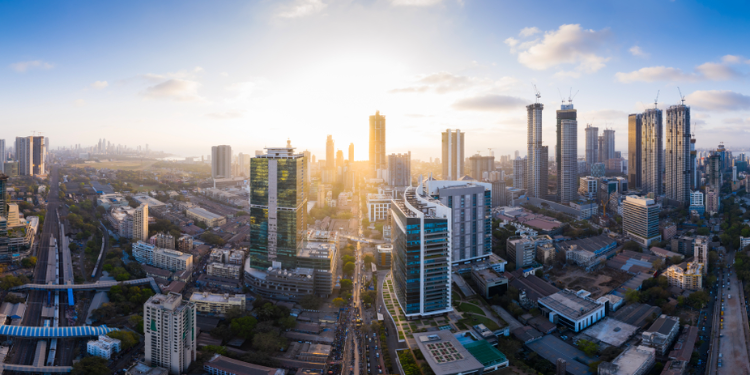An economic powerhouse luring foreign investors
At first glance, India seems to possess all the elements necessary to attract potential expatriates. Its consistent economic expansion since the 1990s, with an estimated growth rate of 7% this year, according to the Indian Ministry of Finance, positions it favorably to potentially rank among the world's top three economic powers. Already surpassing the United Kingdom, its former colonial ruler, India now holds the title of the world's fifth-largest economy. According to the IMF, India may surpass Germany (which recently overtook Japan in February 2024) within three years, thus claiming the position as the world's third-largest economy, following China and the United States. India's remarkable economic growth, much to the satisfaction of Prime Minister Narendra Modi, who has led the country for the past decade, continues to set new records.
Foreign international partnerships are a vital strategy for the company. From France to the United States (with India signing major contracts with Airbus and Boeing and Apple shifting part of its iPhone production to India), and from Canada to Qatar, the United Arab Emirates (UAE), and Saudi Arabia, India positions itself as an attractive investment destination and emerging international hub. This presents significant opportunities for foreign workers. However, their presence remains quite limited, comprising just 0.4% of the workforce, as noted by expatriate insurance expert William Russell.
Complex visa formalities
Getting a work visa in India requires a lot of paperwork. In a study by William Russell published on February 21, 2024, India ranks as the most challenging country for immigration, surpassing Australia and Finland. Conversely, Indian expatriates constitute the largest diaspora globally, with Indian authorities estimating over 30 million expats (compared to the UN's figure of 10 million). The study by William Russell examines factors such as visa fees, minimum income thresholds, and average application processing times. Despite this, India attracts significantly fewer expatriates than traditional immigration destinations like Australia, Canada, the United States, and France, which remain popular among international students and workers despite the sometimes lengthy and complex procedures involved. According to the study, 30.1% of expatriates reside in Australia, while Canada, the United States, and Finland account for 21.3%, 15.3%, and 7%, respectively.
Obtaining a work visa in India comes with an average cost of $543 and necessitates earning a minimum of $19,500. Visa processing typically takes between 10 to 15 working days. This timeframe is significantly shorter compared to Finland, where it can take up to 90 days, and Australia, where it ranges between 4 to 8 months. Moreover, India imposes lower minimum salary requirements: Australia sets an average of $58,600, while Finland requires at least $68,170. Despite being slightly pricier than Finland's work visa (which averages $414), India's visa remains much more affordable than Australia's (averaging $2,000). However, India faces a significant hurdle aside from procedural complexity: the relatively low proportion of foreign residents.
Moving to India is a daunting challenge
The study emphasizes the significance of the number of foreign residents in a country as indicative of integration ease, the effectiveness of immigration policies in welcoming foreigners, and the prevailing immigration culture. Despite the complexity of visa procedures in countries like the USA, Canada, or France, foreign candidates are not deterred, nor are expatriates put off by stringent immigration policies. This feeling is particularly notable among Indian expatriates. According to data from the Indian Ministry of External Affairs (October 2023), there are sizable Indian expatriate populations in various countries, including 4,460,000 in the USA, 3,425,144 in the United Arab Emirates (UAE), 1,764,000 in the UK, 1,689,055 in Canada, and 473,520 in mainland France and overseas territories.
In contrast, France had only 6,969 nationals registered in India as French expatriates in 2023, while British expatriates numbered just over 30,000, with a similar estimate for American nationals. Each country has its unique migration policy and perspective on international partnerships. Faced with aging populations and labor shortages, major immigration countries continue to prioritize skilled labor and tighten visa eligibility criteria, yet they still rely on foreign workers. However, the situation in India differs. Since assuming office in 2014, Narendra Modi has pursued a strategy of leveraging the diaspora to foster partnerships abroad. Nevertheless, breaking into the Indian market remains highly challenging.
Recent agreeements with France
On July 14, 2023, Narendra Modi was the guest of honor at President Macron's side as they commemorated 25 years of Franco-Indian "strategic partnership." Despite Modi's reputation for authoritarian tendencies, Macron extended the invitation, aiming to bolster France's position in the Indo-Pacific region and secure new investments. According to the Ministry of Europe and Foreign Affairs, French exports to India soared to 6 billion euros in 2022, doubling from 2012, while French investment in India quadrupled over the same period. Presently, over 540 French companies and subsidiaries operate in India with nearly 300,000 employees. However, in 2021, French Minister of the Economy Bruno Lemaire regretted the relatively closed nature of the Indian market, particularly for industries like agri-food, automotive, and pharmaceuticals.
This is the paradox of Modi's strategy. His "brand ambassadors," as he refers to Indian expatriates, play a crucial role in helping him penetrate foreign markets. Indian expatriates are particularly prominent in the United States, the United Kingdom, Canada, and the Gulf States. During Modi's visit to France on July 14, 2023, a new bilateral agreement was reached regarding Indian students. France committed to welcoming 20,000 Indian students by 2025 and 30,000 by 2030, along with other measures benefiting Indian expatriates. However, there is a lack of reciprocity in the agreement—there's no aim to increase the number of French students in India. Modi's policy doesn't prioritize boosting the number of expatriates in India, as the country already possesses its own pool of talented individuals struggling to secure employment.
Career opportunities for local and foreign talent
Unlike the United States, Canada, Australia, France, or Finland, India doesn't grapple with an aging population. In those nations, immigration is both an economic and demographic concern. However, in India, nearly half of the population is under 25 years old. In 2023, the median age was just 29. This economic powerhouse is also a demographic force to be reckoned with, having surpassed China, which also contends with an aging population.
However, the economic powerhouse has its vulnerabilities. Despite a growth rate of 7%, unemployment remains high, reaching 8.3% in December 2023, particularly among young people. Over 40% of young graduates are actively seeking employment, often having to settle for low-paid jobs. India's growth conceals an economy heavily reliant on the informal sector, characterized by small, unstable positions in construction, catering, and services, offering very few long-term career prospects. This is why Indian graduates seek opportunities abroad, courted by economic powers seeking foreign talent.
It's clear why the Indian government hasn't pursued a policy of welcoming more foreign workers. With its abundant local talent pool, India is discerning regarding expatriates. Seasoned, highly skilled foreign professionals stand the best chance of catching the eye of recruiters, especially within international companies operating in India. The primary sectors actively seeking talent include automotive, energy, healthcare, aerospace, and telecommunications. Additionally, the rise of artificial intelligence (AI) is creating new job opportunities tied to AI and emerging technologies, making highly qualified foreign profiles in demand.
















